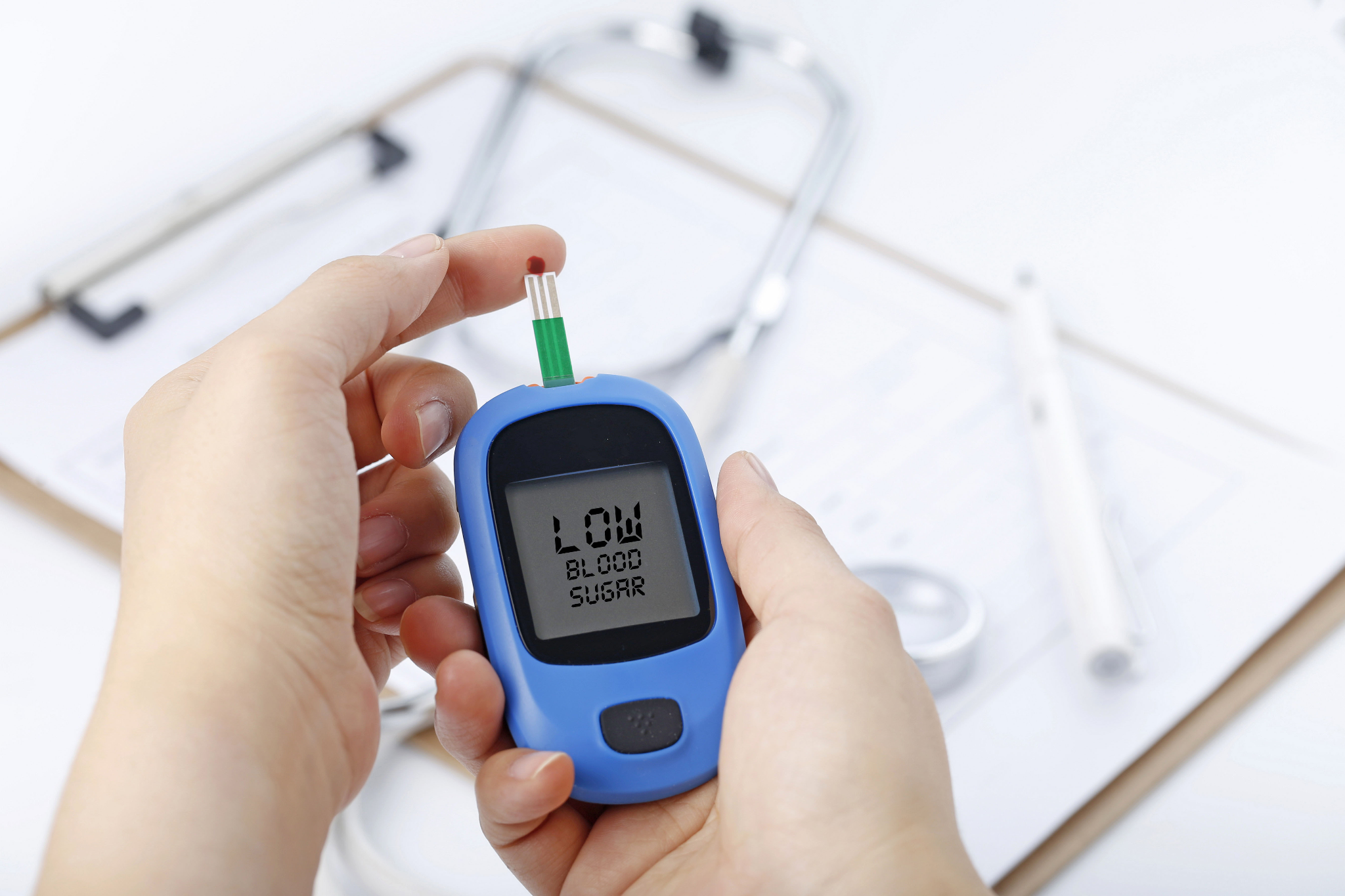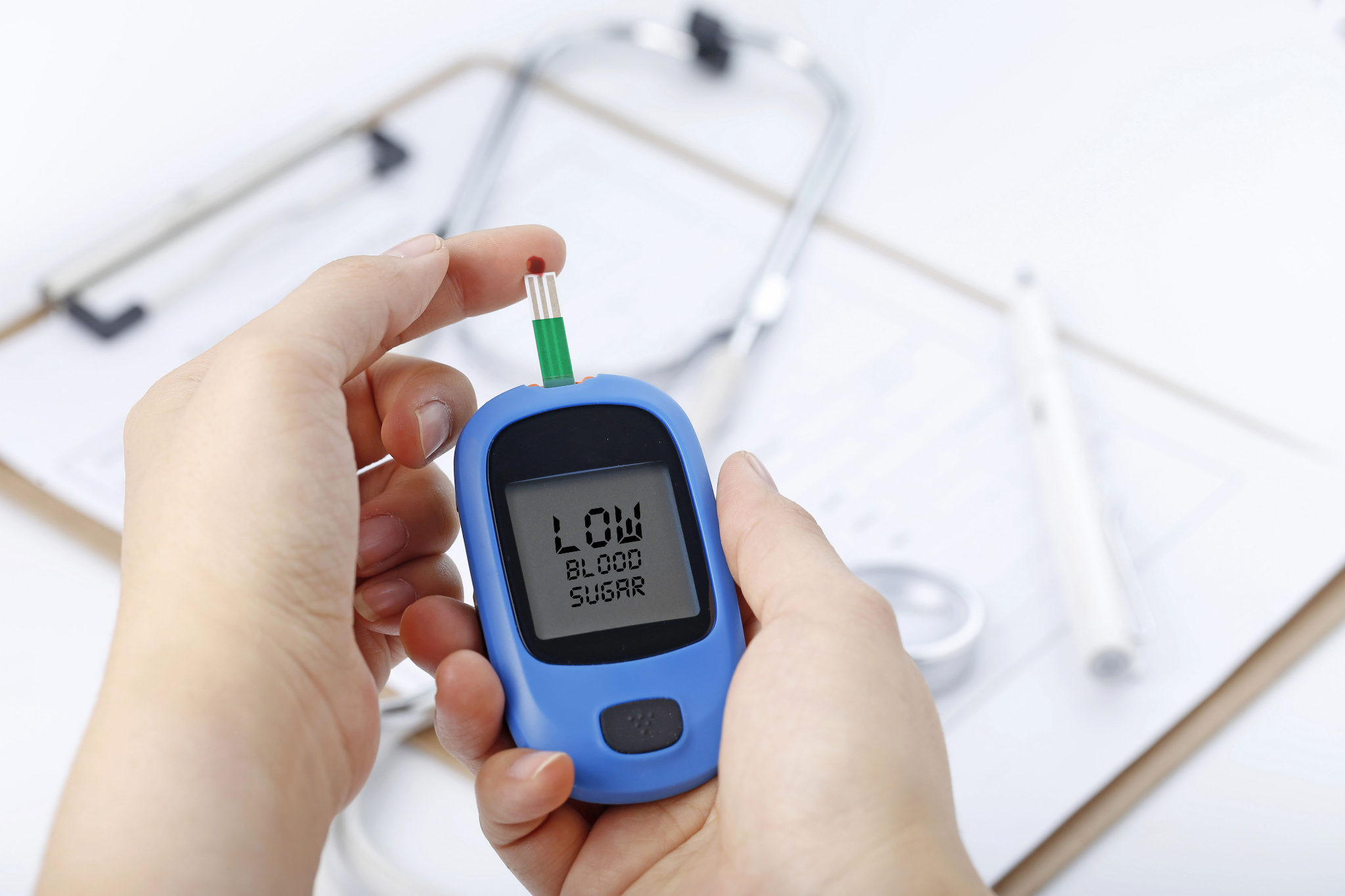









Free Shipping (WM) | Sign Up Biobay Membership for Free 50 Points & Exclusive Benefits
Reported by the Ministry of Health, diabetes is a growing health issue in Malaysia, with 1 in 5 adults affected. One common complication is diabetic neuropathy, which causes nerve damage, pain, tingling, and numbness—especially in the hands and feet—due to high blood sugar levels. For many Malaysians, daily lifestyle habits and food choices play a big role in how diabetes and its complications develop. With growing awareness of preventive healthcare and natural alternatives, more Malaysians are looking for ways to manage diabetic neuropathy beyond medication alone.
- Diabetic neuropathy is a nerve disorder caused by prolonged high blood sugar, leading to pain, numbness, and weakness.
- High blood sugar, poor circulation, oxidative stress, inflammation, and nutrient deficiencies contribute to nerve damage.
- Tingling sensation, burning pain, numbness, muscle weakness, digestive issues, and reduced sensation in affected areas.
- Alpha-Lipoic Acid, Vitamin B12, Omega-3, Magnesium, and Curcumin help improve pain relief and support nerve function.
- A balanced diet, regular exercise, stress management, proper foot care, and quality sleep can improve nerve health and reduce symptoms.

Diabetic neuropathy is a nerve disorder caused by prolonged high blood sugar levels, leading to nerve damage over time. It is one of the most common complications of diabetes, affecting many Malaysians who struggle with blood sugar control.
This condition can impact different types of nerves, including those in the hands, feet, digestive system, and even the heart.

Diabetic neuropathy develops when high blood sugar levels damage the nerves over time. This condition is more common in people with poorly controlled diabetes, but other factors can also increase the risk.
Here are five main causes of diabetic neuropathy:
|
Cause |
Description |
Impact on Nerves |
|
Prolonged High Blood Sugar Levels |
Excess sugar in the blood damages nerve fibres and affects their ability to send signals. Poor blood sugar control leads to faster nerve deterioration. |
Nerves lose their ability to function properly, leading to pain, numbness, and weakness. |
|
Poor Circulation (Reduced Blood Flow to Nerves) |
Diabetes affects blood vessel health, reducing oxygen and nutrient delivery to the nerves. |
Increased nerve damage, higher risk of chronic pain, and slower recovery. |
|
Nutrient Deficiencies (Vitamin B12, Magnesium, Omega-3s) |
Key nutrients like Vitamin B12, Magnesium, and Omega-3 fatty acids are essential for nerve repair and protection. Diabetes medications can also deplete these nutrients. |
Weakened nerve functions have a higher risk of tingling, numbness, and pain. |
|
Unhealthy Lifestyle Habits |
High-carb and sugar-rich diets (e.g., nasi lemak, roti canai, teh tarik) worsen blood sugar control. Lack of exercise reduces circulation while smoking and alcohol further damage nerves. |
Poor nerve function, increased inflammation, and higher risk of severe neuropathy. |
Diabetic neuropathy can significantly impact daily activities and quality of life, especially if left untreated. Many people seek better ways to protect their nerves—through early management, neuropathy supplements, and lifestyle changes.

Diabetic neuropathy affects different types of nerves in the body, leading to a wide range of symptoms. These symptoms often develop gradually and may worsen over time if blood sugar levels are not well controlled.
Understanding the four main types of diabetic neuropathy can help in identifying symptoms early:
|
Type of Neuropathy |
Affected Areas |
Common Symptoms |
|
Peripheral Neuropathy (Most Common Type) |
Hands, feet, legs, arms |
- Tingling or burning sensation in the hands and feet- Numbness or loss of sensation, increasing injury risk- Sharp, stabbing, or electric-like pain- Muscle weakness or difficulty with coordination |
|
Autonomic Neuropathy |
Internal organs (digestive system, heart, bladder, sweat glands) |
- Digestive issues (bloating, nausea, diarrhoea, constipation)- Dizziness or fainting due to blood pressure fluctuations- Bladder problems (difficulty urinating, frequent infections)- Excessive sweating or inability to sweat- Sexual dysfunction (erectile dysfunction in men, vaginal dryness in women) |
|
Focal Neuropathy |
Specific nerves in the head, torso, or limbs |
- Sudden, sharp pain in the eyes, face, torso, or legs- Muscle weakness or paralysis in a specific area- Vision problems (double vision, difficulty focusing)- Severe pain in one side of the body (e.g., chest, thigh) |
|
Proximal Neuropathy |
Hips, thighs, buttocks |
- Severe pain in the hip, thigh, or buttock- Weakness in leg muscles, making standing or climbing stairs difficult- Gradual muscle shrinkage (atrophy) in affected areas |
Struggling with nerve pain? Discover how to manage symptoms and support nerve health with the supplements for nerve pain.

Managing diabetic neuropathy goes beyond blood sugar control—certain supplements can help protect nerves, reduce pain, and improve circulation.
Here are the essential supplements and vitamins for nerves and how they work:
Alpha-Lipoic Acid (ALA) is a powerful antioxidant that helps reduce nerve pain, tingling, and numbness. It improves nerve conduction and blood flow, making it one of the most studied supplements for diabetic neuropathy.
A 2022 meta-analysis published in Diabetes Care found that ALA significantly reduces neuropathic symptoms, while another study by Hsieh et. al. (2023) showed improved nerve function by reducing oxidative stress and enhancing microcirculation.
The recommended dosage is 600 mg daily for optimal nerve protection.
Vitamin B12 is essential for nerve repair and protection, especially for people with diabetes prone to B12 deficiencies, particularly those on metformin. This vitamin helps prevent nerve degeneration and supports nerve regeneration.
Research published in the National Library of Medicine (2021) found that B12 supplementation improves nerve function and reduces neuropathy symptoms in people with diabetes.
A daily intake of 1,000 mcg is recommended for maintaining healthy nerve function.
Acetyl-L-Carnitine (ALC) is known for its nerve-regenerating properties. It helps repair damaged nerve fibres by boosting cellular energy production, reducing pain, and improving nerve function.
A study in Diabetes Journal (2024) found that ALC supplementation significantly reduced nerve pain and promoted nerve healing.
The ideal dosage is 500–1,500 mg daily, divided into two doses.
Magnesium plays a key role in muscle and nerve relaxation, helping to reduce cramps and nerve pain commonly associated with diabetic neuropathy. It also supports nerve signal transmission and improves blood circulation.
Wu and researchers reported in the Frontiers in Neurology (2023) that magnesium deficiency worsens neuropathic pain, and supplementation may help improve nerve function.
Take 200–400 mg daily, preferably before bedtime for best results.
Omega-3 fatty acids are well known for their anti-inflammatory properties. They help repair nerve cells, improve nerve membrane function, and reduce oxidative stress, contributing to nerve damage.
The recommended dosage is 1,000–2,000 mg of combined DHA and EPA daily.
Discover the powerful omega 3 oil benefits for heart, brain, and nerve health. Learn how it supports overall wellness.
Curcumin, the active compound in turmeric, is a natural anti-inflammatory that may help ease nerve pain and oxidative stress. It has been found to protect nerves from damage and improve circulation, making it beneficial for those with diabetic neuropathy.
A study by Park et. al. (2021) highlighted that curcumin supplementation significantly reduces neuropathic pain and enhances nerve function.
The suggested intake is 500–1,000 mg daily, ideally combined with black pepper for better absorption.
Vitamin D is essential for nerve health, immune function, and reducing inflammation. People with diabetes with low Vitamin D levels are at a higher risk of nerve pain, muscle weakness, and poor nerve function. This vitamin plays a role in nerve regeneration and may help reduce neuropathic pain and inflammation.
Research published in Diabetes & Metabolism (2021) found that patients with diabetic neuropathy had significantly lower Vitamin D levels, and supplementation helped improve symptoms.
A daily intake of 1,000–5,000 IU is recommended, depending on deficiency levels. Sun exposure and supplementation can help maintain optimal nerve health.
Chromium is a trace mineral that plays a key role in blood sugar regulation and insulin sensitivity. Since poor blood sugar control contributes to diabetic neuropathy, chromium may help prevent nerve damage by stabilising glucose levels.
A study in The Journal of Clinical Pharmacy and Therapeutics (2020) found that chromium supplementation improved blood sugar control, which may help slow the progression of nerve damage in diabetics.
A daily dose of 200–1,000 mcg of chromium picolinate is advised to enhance insulin sensitivity, regulate blood sugar, and help protect nerve health.
When choosing a nerve pain supplement, look for clinically proven ingredients such as ALA, Vitamin B12, and Omega-3s. Ensure that the product is high-quality, free from unnecessary fillers, and comes from a trusted brand.

Managing diabetic neuropathy isn’t just about medications and supplements—it also requires lifestyle changes to improve nerve health, reduce pain, and enhance overall well-being. Here are some key holistic strategies that Malaysians can adopt:
|
Lifestyle Tip |
Key Actions |
|
Balanced Malaysian Diet |
- Swap refined carbs for whole grains (brown rice, quinoa, whole wheat bread). - Reduce sugar intake by limiting teh tarik, bubble tea, and kuih-muih. - Eat more fiber-rich vegetables (ulam, kangkung, bayam). - Increase healthy fats (e.g., ikan kembung, salmon, nuts). - Stay hydrated with plain water or unsweetened herbal teas. |
|
Regular Exercise |
- Do brisk walking or cycling (30 mins/day, 5x a week). - Try swimming for low-impact circulation benefits. - Practice tai chi or yoga to improve balance and flexibility. - Include strength training to prevent muscle weakness. |
|
Foot Care Routine |
- Check feet daily for cuts, blisters, or swelling to prevent infections and reduce the risk of foot ulcers. - Wear comfortable, well-fitted shoes with proper support. - Keep feet clean and moisturised to prevent cracks. - Trim nails straight across to avoid ingrown toenails. |
|
Stress Management |
- Practice deep breathing exercises to calm nerves. - Try mindfulness or meditation to manage pain and stress. - Spend time outdoors to lower stress hormones. - Stay socially connected with friends, family, or support groups. |
|
Quality Sleep |
- Maintain a consistent sleep schedule (7-9 hours/night). - Limit screen time before bed. - Create a relaxing bedtime routine (e.g., reading, warm shower, meditation). |
|
Limiting Alcohol & Avoiding Smoking |
- Reduce alcohol intake, as it worsens nerve pain. - Quit smoking, which restricts blood circulation and worsens nerve damage. |
Curious about whether acupuncture can cure nerve pain? Discover its benefits, effectiveness, and what research says about this traditional treatment.
Diabetic neuropathy is a serious and progressive condition, but with the right lifestyle changes, supplements, and proactive management, it is possible to reduce symptoms, improve nerve function, and enhance overall well-being.
By focusing on a balanced diet, regular exercise, stress management, proper foot care, and essential nutrients, individuals with diabetic neuropathy can take control of their health and prevent further nerve damage. Supplements such as Alpha-Lipoic Acid, Vitamin B12, Omega-3 fatty acids, and Magnesium have shown potential in supporting nerve repair and reducing pain, making them valuable additions to a comprehensive wellness plan.
Taking early action is crucial—whether it’s making small lifestyle adjustments, incorporating nerve-supporting supplements, or consulting a healthcare professional for personalised advice.
Visit BioBay’s official website to explore more healthcare products in Malaysia that support overall well-being or contact us for more information.
